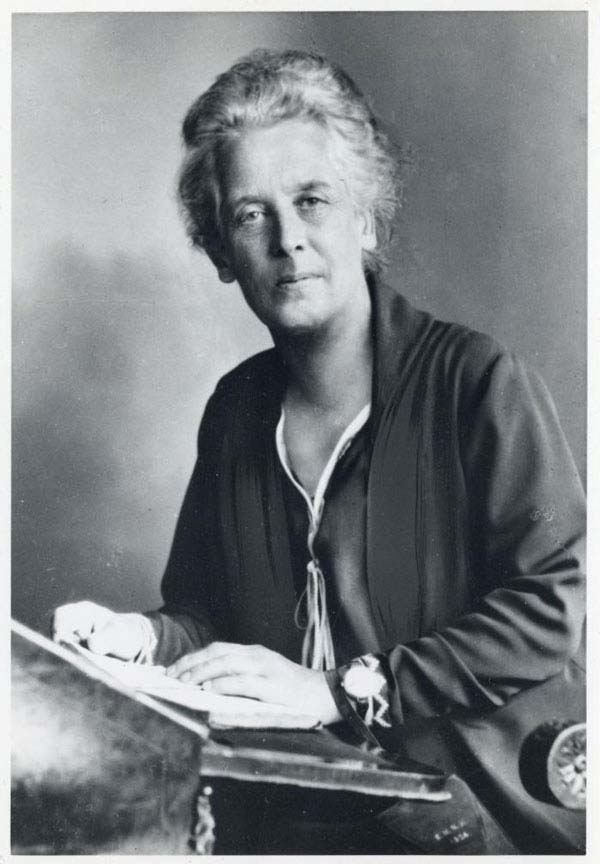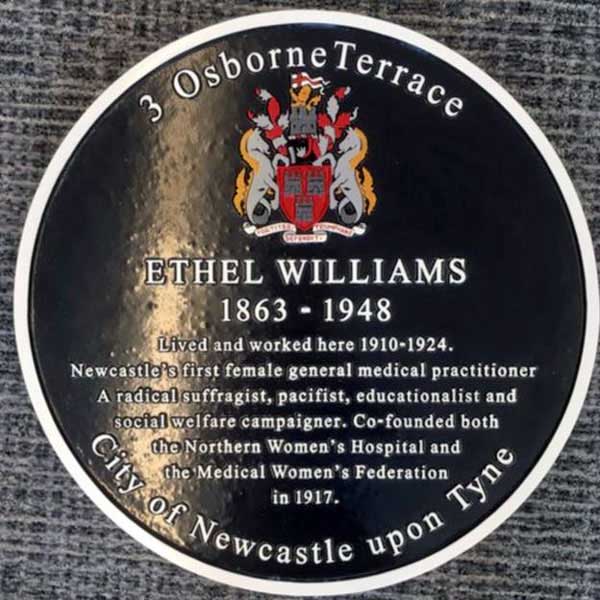The first female GP in Newcastle who campaigned for children’s and women’s health has been commemorated when a plaque was unveiled in her memory.

Ethel Williams was also reputedly the first woman in the North East to drive her own car – and service it.
Jesmond resident
Williams (1863-1945) lived at 3 Osborne Terrace, Jesmond, where Lord Mayor of Newcastle Cllr David Down unveiled a plaque in her memory on Wednesday, July 18.
Among those at the unveiling were members of the Workers Educational Association which championed her case for a plaque.
Cabinet Member for Culture, Sport and Public Health, Cllr Kim McGuinness, said: “Newcastle is a city with a rich heritage and a history of striving for equality. Ethel Williams’ remarkable story is part of that.
“This year we celebrate 100 years since some women got the vote. Commemorating great women who played a part in making the city the great place it is today is part of that celebration and it’s fantastic to see Ethel Williams honoured.
“Our blue plaques are designed to draw attention to the great sons and daughters of Newcastle so future generations can learn about them and be inspired and to keep drive our great city forward.”

Lord Mayor of Newcastle, Cllr David Down, said: “In many respects Ethel Williams was a woman ahead of her time. She vigorously campaigned for women to get the vote and as a GP did a huge amount to improve the health and well-being of women and children.”
Set up her own GP practice
Williams attended the London School of Medicine for Women and graduated in 1891, but had to gain her internship abroad in Paris and Vienna, as women could not train in British hospitals.
Such barriers, and her belief in the need to supplement medical care with social reform, led to her active involvement in the suffragette movement. Though never militant, she withheld her taxes in 1905 – a year before she set up her own GP practice.
She co-founded the Northern Women’s Hospital in 1917 and, when she retired in 1924, she left her practice to another female doctor, Dr Mona MacNaughton. By this time there were 14 female doctors practicing in Newcastle.
She died in 1948 and Ethel Williams’ Halls of Residence was opened in her memory in 1950 at Newcastle University.
Williams was an active member of the National Union of Women’s Suffrage Societies. A banner from the Mud March in which she took part is on display in the Ethel Williams Collection in Newcastle University’s Robinson Library.
She was also a member of the Women’s International League for Peace and Freedom. In 1915 she was due to travel to a conference in The Hague but was prevented from doing so by the Government.
Williams went on to become a Justice of the Peace, a member of Newcastle Education Committee and co-founder of the Monkton Home for Mental Defectives, the Northern Women’s Hospital and the Medical Women’s Federation.
